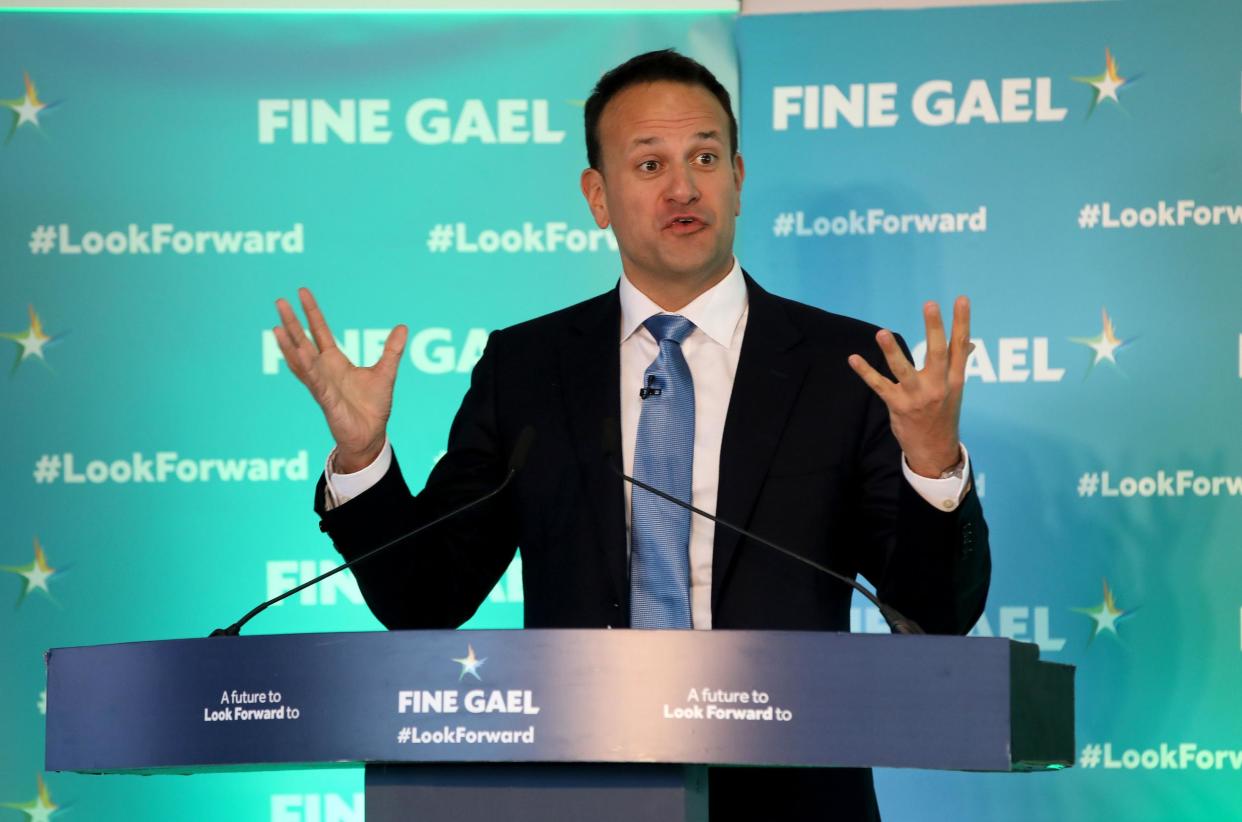Sinn Fein surge in polls ahead of Ireland election as Leo Varadkar’s party suffers

Sinn Fein is surging in the polls ahead of next month's Irish general election, while Leo Varadkar's party is looking set to lose ground.
The Irish republican party is up seven points since October and is now on 21 per cent – within touching distance of Ireland's two main parties.
By contrast Mr Varadkar's Fine Gael is down six points in the same period on 23 per cent, while Ireland's other traditionally dominant party, the conservative Fianna Fáil is flat in first place on 25 per cent, according to the Ipsos MRBI poll.
Sinn Fein is still controversial in the Republic, where it is shunned by some voters because of its historic links to the IRA.
But left-leaning policies such as a rent freeze and huge council homes building programme to address the country's housing crisis, as well as promises to return the pension age to 65 have driven support for the party.
The left-wing republicans are doing particularly well among younger voters, will a commanding lead over the other parties with all voters aged 34 and younger, a breakdown in the same poll suggests.
But the oldest voters are still shunning Sinn Fein: just 12 per cent of over 65s say they would vote for the party, compared to 32 per cent of 25-34 year olds.
Its leader Mary Lou McDonald (approval rating 34 per cent, up four since October) is now about as popular as Mr Varadkar (35 per cent, down 16), and Fianna Fáil leader Micheál Martin (33 per cent, down five).
The result for Fine Gael would represent a historic decline for the liberal conservatives, who won 25.5 per cent in 2016 and 36 per cent in 2011.
While Fine Gael and Fianna Fáil are long-standing bitter rivals, they could be forced to go into grand coalition after the election if the results of the poll are replicated on election day. Both parties have historically shunned Sinn Fein because of the party's controversial history of supporting armed struggle.
Ireland usual the single transferable vote electoral system, which produces broadly proportional results where the seats given to each party tend to reflect the votes cast. As such, no party would be able to govern on their own.
The country's voting system has also tended to result in large numbers of independents being elected – 19 in the most recent parliament elected in 2016 – meaning any coalition negotiations could be hard to predict.
The poll, commissioned by the Irish Times, shows smaller party Greens on 8 per cent and Labour on 5 per cent.
Read more
Varadkar says Johnson’s NI bridge idea should be treated seriously

 Yahoo News
Yahoo News 
